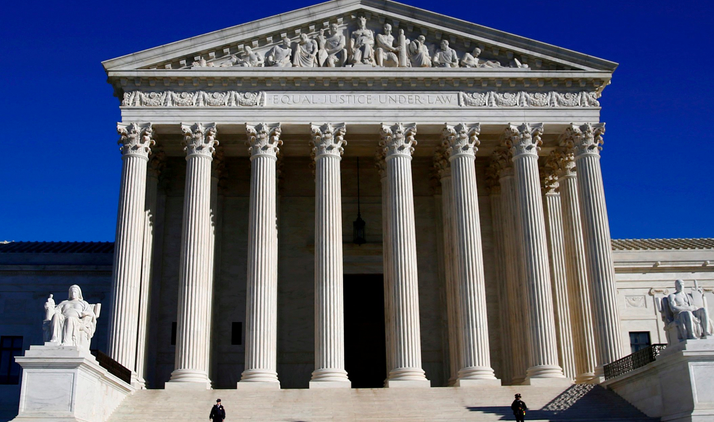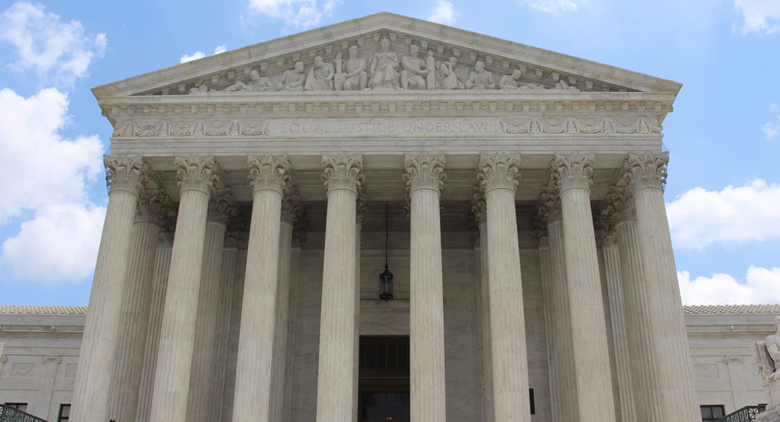
What Kavanaugh’s Supreme Court Nomination Means for HR

Earlier this month, President Trump announced his latest pick to sit on the Supreme Court: Judge Brett M. Kavanaugh. The nomination, which has garnered praise from Republicans and derision from Democrats, could preserve the Supreme Court’s conservative bent for decades. If confirmed, he would fill the seat left vacant by the retiring Justice Anthony Kennedy.
While the jury remains out as to whether Democrats will be able to stall his confirmation, it’s clear that his addition to the Court could have a lasting impact on labor relations and employment law. Kavanaugh’s long history in the D.C. Circuit includes cases on hot button issues like the Affordable Care Act, worker safety, discrimination, and more.
Textualism and the Chevron Deference
Like the late Justice Antonin Scalia, Kavanaugh considers himself a “textualist.” This means that he believes in interpreting laws as they are written, without considering things like legal precedent or historical meaning. It’s a line of thinking pioneered by Scalia, and one that the recently confirmed Justice Neil Gorsuch also adheres to. This philosophy has resulted in Kavanaugh taking a narrow and “by the book” interpretation of employment law.
Another important quality of Kavanaugh’s is his staunch opposition to the Chevron deference, a decades-old legal precedent that grants government agencies the power to broadly interpret laws. In essence, when the intent of a law or rule is unclear, Chevron defers to regulators to fill the gap. The Department of Labor under President Obama used this interpretation to try to update overtime rules back in 2017.
In a fiery keynote address, Kavanaugh railed against that legal doctrine.
“Chevron tells us that we must defer to an agency’s reasonable interpretation of a statute if the statute is ambiguous. To begin with, the Chevron doctrine encourages agency aggressiveness on a large scale. Under the guise of ambiguity, agencies can stretch the meaning of statutes enacted by Congress to accommodate their preferred policy outcomes.”
On the Issues
Through his long career on the D.C. Circuit, Kavanaugh has opined on a number of employment and labor-related cases. Below, we’ve summed up his past rulings on issues that directly relate to the day-to-day work of HR professionals.
Workplace Discrimination
In one 2012 case, an individual alleged that his supervisor denied him a pay increase because of his race and referred to him using a slur. Fannie Mae, the employer, argued that one supervisor’s actions alone could not make for a hostile work environment.
In a pro-employee decision (and one that serves to illustrate Kavanaugh's adherence to textualism), the judge ruled that one incident alone can create a hostile work environment. “The test set forth by the Supreme Court is whether the alleged conduct is ‘sufficiently severe or pervasive’...not whether the conduct is ‘sufficiently severe and pervasive.’ A single, sufficiently severe incident, then, may suffice to create a hostile work environment.”
Case: Ayissi-Etoh v. Fannie Mae
Immigration
In 2008, Kavanaugh ruled that undocumented workers were not entitled to the same labor and union rights and protections as Americans or legal immigrants. He opined that illegal immigrants could not be considered “employees,” since the Immigration Reform and Control Act requires U.S. workers to have legal status. That same law introduced the Form I-9 back in 1986.
Case: Agri Processor Co. v. NLRB
Safety and Liability
In 2010, the Occupational Health and Safety Administration (OSHA) filed suit against Sea World after a trainer was drowned by a killer whale. While OSHA won the case in 2014, Kavanaugh was the sole dissenting judge on the case. In his dissent, he wrote that employees in certain industries willingly take on the risk of death as a part of employment. Citing the example of American football and concussions, he asked “When should we as a society paternalistically decide that the participants in these sports and entertainment activities must be protected from themselves?”
Case: Sea World of Florida, LLC v. Thomas Perez
Affordable Care Act
While much has been said about Kavanaugh’s supposed opposition to the Affordable Care Act (ACA), there’s little evidence that he is either for or against the healthcare law. In a 2011 opinion, Kavanaugh declined to rule on the constitutionality of the individual mandate, or the penalty for not having health insurance, simply because the tax hadn’t actually been collected yet. Under the Anti-Injunction Act of 1867, courts can not decide the constitutionality of a tax until it has actually been collected.
Case: Susan Seven-Sky v. Eric Holder

The above cases represent just some of Kavanaugh’s rulings. As you might have gleaned, his textualist approach to interpreting the law can sometimes result in unpredictable stances. This said, the overall body of his work suggests that his confirmation to the Supreme Court would solidify that body’s already strong pro-employer leanings.
The Namely team will continue to monitor the status of his nomination in Senate. Subscribe for updates by clicking the button below.

See how Namely's flexible solution will help you streamline your HR processes by having your people, payroll, and benefits info all in on place.
Get a demoYou May Also Like
Get the latest news from Namely about HR, Payroll, and Benefits.
Thanks for subscribing!


Get the latest news from Namely about HR, Payroll, and Benefits.
Thanks for subscribing!



